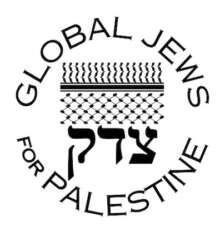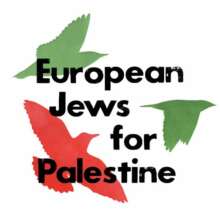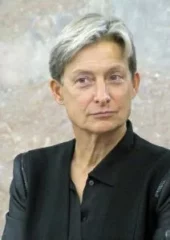Film director Iyad Alasttal talks to Hassina Mechaï | Published in Middle East Monitor on November 24, 2019.
Iyad Alasttal is a Palestinian film director. Born in Khan Younis, he has directed award-winning documentaries about the Gaza Strip which have won prizes at several film festivals in Egypt, France, Lebanon, Britain, Italy, Tunisia and Palestine. He also works as a translator for French delegations and journalists in Gaza.
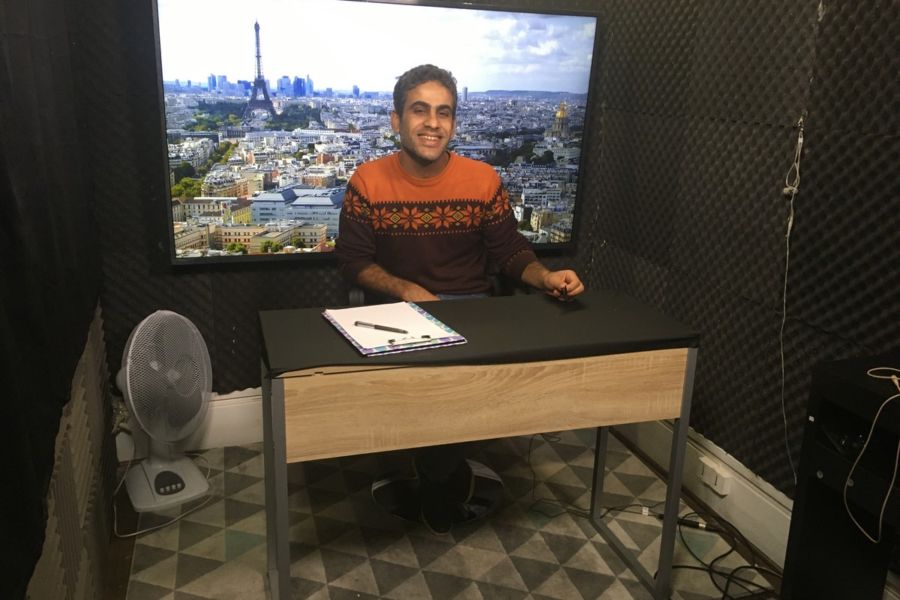
Born during the First Intifada, Alasttal points out that he has never known anything other than colonisation or the blockade of Gaza. However, he considers himself lucky. Even if his family has never left Palestine, he was able to leave thanks to the NGO Corsica Palestina, which helped him obtain a university scholarship to go to Corsica to study cinema at the age of 24. Thanks to this experience, he speaks impeccable French and has an acute vision of the importance of stories and narratives in any political struggle. Alasttal has used his passion for images and sound to help his people, to help Gaza and more broadly to help the Palestinian cause.
“For an inhabitant of Gaza, travelling overseas, or just leaving the territory, is not easy,” he tells me while visiting Paris. Making movies, he says, is his passport. “It allows me to travel and, above all, to show the situation in Gaza, and in the West Bank. It is a way for me to be useful to my people. I believe that every Palestinian can help in this struggle, through his work, his way of life, his testimony.” He has just held a series of public meetings to show his work and especially the daily life of Gaza and its inhabitants.
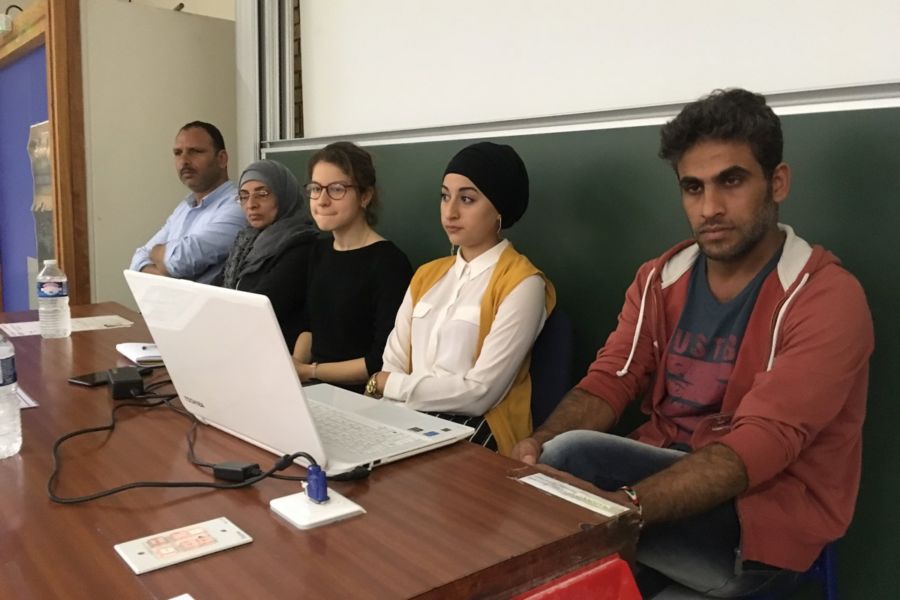
Alasttal has directed two remarkable documentaries. The first followed the daily life of a woman, Salouah, who drives a school bus in Gaza. “I wanted to show another image of the Palestinian woman. Salouah, the character in this film, is independent, full of life, and speaks as an equal with men.” He showed the world the children who go to school in their uniforms; their daily life despite the blockade, despite the economic living conditions, despite the Israeli bombardments.
His second documentary was dedicated to Razan Al-Najjar, a young nurse killed by an Israeli sniper on 1 June last year. Just 21 years old, she was shot and killed while tending an injured Palestinian who was taking part in the Great March of Return protests near the nominal Gaza-Israel border. Her funeral was attended by several thousand people. A preliminary Israeli investigation stated that “no deliberate shot targeted” the young woman, while questioning her role as a volunteer nurse. However, the UN issued a statement expressing its concern about the murder, saying that Razan Al-Najjar was “clearly identified as a member of the medical staff” by her vest bearing the Red Crescent logo.
Razan Al-Najjar: a white coat stained with blood
“Every Friday, there were wounded and dead,” explains the director. “I passed information on to NGOs to inform them of the situation in the field. With Razan’s murder, more had to be done. I decided to film this documentary about her and started shooting a month after her death.”
He contacted the UJFP (Union Juive Française pour la Paix — the French Jewish Union for Peace), which decided to join forces with AFPS (Association France Palestine Solidarité) and Le Temps de la Palestine society to appeal for donations.
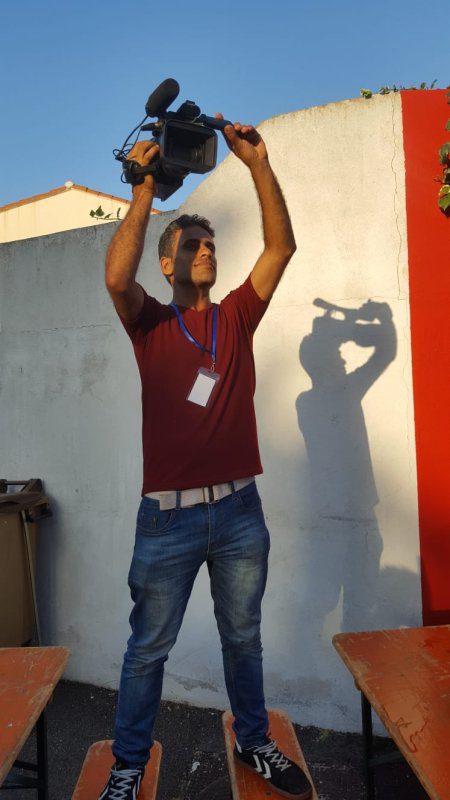
Alasttal has directed two remarkable documentaries. The first followed the daily life of a woman, Salouah, who drives a school bus in Gaza. “I wanted to show another image of the Palestinian woman. Salouah, the character in this film, is independent, full of life, and speaks as an equal with men.” He showed the world the children who go to school in their uniforms; their daily life despite the blockade, despite the economic living conditions, despite the Israeli bombardments.
His second documentary was dedicated to Razan Al-Najjar, a young nurse killed by an Israeli sniper on 1 June last year. Just 21 years old, she was shot and killed while tending an injured Palestinian who was taking part in the Great March of Return protests near the nominal Gaza-Israel border. Her funeral was attended by several thousand people. A preliminary Israeli investigation stated that “no deliberate shot targeted” the young woman, while questioning her role as a volunteer nurse. However, the UN issued a statement expressing its concern about the murder, saying that Razan Al-Najjar was “clearly identified as a member of the medical staff” by her vest bearing the Red Crescent logo.
Razan Al-Najjar: a white coat stained with blood
“Every Friday, there were wounded and dead,” explains the director. “I passed information on to NGOs to inform them of the situation in the field. With Razan’s murder, more had to be done. I decided to film this documentary about her and started shooting a month after her death.”
He contacted the UJFP (Union Juive Française pour la Paix — the French Jewish Union for Peace), which decided to join forces with AFPS (Association France Palestine Solidarité) and Le Temps de la Palestine society to appeal for donations.
Palestinian film director, Iyad Alasttal [provided]
“I didn’t know anything about Razan Al-Najjar before,” Alasttal points out, “but I found out who she was after she was killed. She was deliberately targeted. Razan was a civilian, a volunteer, wearing clear PMRS [Palestinian Medical Relief Society] distinguishing marks on her vest. The Israeli sniper must have seen them clearly and she was protected by international conventions. If I hadn’t made that documentary, it would have been like me being an accomplice to this crime.”
The young nurse’s parents agreed to speak on camera and accompany him to present the documentary abroad.
Since March, Iyad Alasttal has been working on another project. Gaza Stories is a multimedia project in French and English, which aims to show the world the resilience of the Palestinians in Gaza and how they manage to live their daily lives. More than 50 videos have already been made and distributed via social networks and supporters. Working around Alasttal, a team of Gazan filmmakers and journalists are producing films, reports, documentaries and information about daily life in the Gaza Strip, as well as political, economic, social, artistic and cultural issues. “Today, thanks to social media, information is spread very quickly, as is misinformation and fake news. Our mission is to show the point of view of the Palestinians in Gaza.”
Gaza Stories, therefore, offers a weekly story, usually every Friday, and an image database is also available for media interested in working on Gaza and its situation. “We can provide images to the media. Our objective is to build partnerships with foreign media. We’ve contacted media to offer them a collaborative role. We have all the human and technical skills available in the field to do an excellent job.”
Rana, for example, is a young Palestinian girl filmed for Gaza Stories. She carves huge ephemeral statues in the sand. Her brother was wounded during the Great March of Return protests and it was as a way to exorcise her pain that Rana chose this art form. In another story, people are rushing to make their final purchases in preparation for Eid Al-Fitr. Then there is the story of Said and his shelter for abandoned animals; Ibrahim in the traditional dress of the mesaharati, or storyteller, who travels through Gaza at night with his tambourine; Oum Hani who explains how to make atayefs and then gives us her recipe for ka’ak; laughter and children’s games are seen in an amusement park; we glimpse the rich history of Gaza that Waled preserves and protects in his small museum; and are given a new recipe, chicken mandi. Small things from everyday life remind us of a living society and culture.
“Gaza Stories was born out of a desire to show the other side of Gaza,” says Alasttal. “Everyone thinks this territory is like Tora Bora, all destruction and ruins. But above all else, 2 million people live, work, make and create here. I wanted to show everyday life. I try to vary the subjects to show the life of the people in general, or I like to focus on particular life stories.” The idea, he adds, was born from conversations with French activists. “I built the project, looked for the necessary equipment, and we started a fund that helped us a lot. I work with an evolving team. I am looking for collaborators who understand the militant dimension of the project. It can be complicated to film in Gaza; getting the necessary authorisations, and for people to agree to be followed and filmed; make them feel comfortable in front of the camera. It’s quite a job. It is mainly the authorisations to film that can be complicated to obtain.”
The strength of Gaza Stories is that people simply forget about the camera. We see a little girl who is crazy about horse riding and who observes from her window that she has got used to the roar of Israeli drones. “Israeli drones never leave the sky of Gaza,” Alasttal noted. “It’s a closed-air prison. The sky is entirely controlled by the Israeli army.”
There are also videos of amputees and other people with disabilities after being wounded by the Israeli army. Their’s is a daily life of resilience and struggle which doesn’t prevent them from playing sport despite their difficulties.
WATCH: Amputee football championships held in Gaza
For the moment, Gaza Stories is only translated into French although the goal is to make the project available in English too.
I asked the director if, by normalising daily occurrences in the enclave, Gaza Stories suggests that life in Gaza is basically bearable, even possible without too much suffering. He acknowledges such a possibility.
“Nevertheless, there is a Gaza in terms of suffering, but we must also remember that there is a Gaza with life. These are two realities. The whole world has a bleak vision of Palestine. If it sees the suffering in the West Bank, the suffering in Gaza is multiplied tenfold. But there is also resistance. To exist is to resist. That’s what the Palestinians do. Everything is an act of resistance, your everyday life is an act of resistance, even the most basic things.”
That is perhaps why some of the films which are part of Gaza Stories focus on retracing the memory and history of the Palestinian presence in the land. Whether through artistic know-how or museums, the vigour and vitality of a society threatened with “sociocide” is recorded by the series. “I have made several videos that show the importance of history. Gazan people tell the history of the Palestinian presence on this land. Israel tries to appropriate Palestinian or even Middle Eastern culture, including food, music and symbols, so there is also a great cultural and economic battle that is being fought. That’s why I filmed a Palestinian woman who makes traditional cakes, for example. Everyone makes themselves the guardian of a memory that they strive to keep alive.”
Iyad Alasttal is certain that the Palestinians will continue their struggle. “Israel believes that in time the Palestinians will forget and resign themselves to their fate, but the opposite is true.” The struggle and resistance are growing stronger, he insists. “In terms of history, other regimes have fallen — the Berlin Wall, colonial Algeria and South African Apartheid are just three examples; there are more. The Palestinians are a highly educated people and a people with a sharp sense of history.”
That is what the Gaza Stories series is all about. It is another way of talking about the Gaza Strip away from the usual politicised doom and gloom, bringing the occupied Palestinian territory and its people to life for a wider audience to appreciate.






